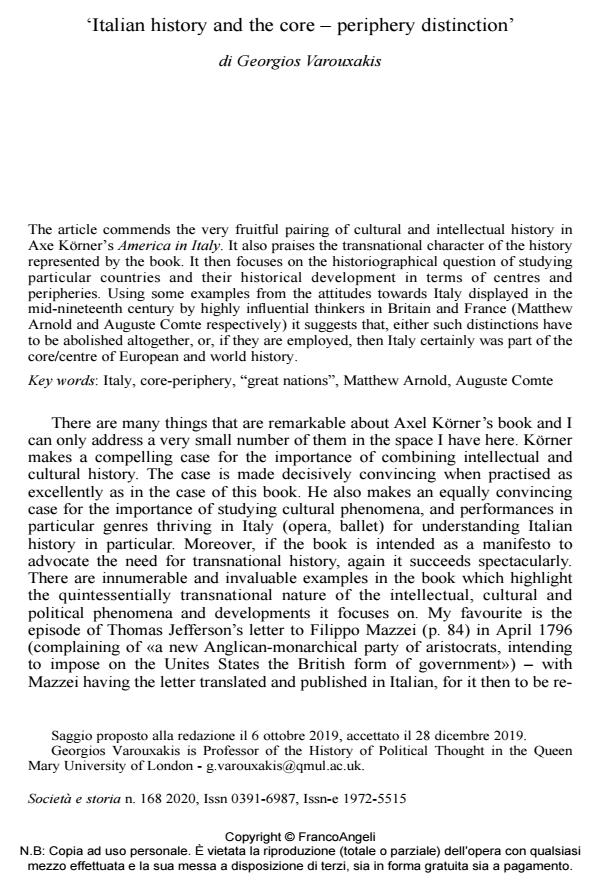"Italian history and the core - periphery distinction"
Journal title SOCIETÀ E STORIA
Author/s Georgios Varouxakis
Publishing Year 2020 Issue 2020/168
Language English Pages 6 P. 375-380 File size 31 KB
DOI 10.3280/SS2020-168009
DOI is like a bar code for intellectual property: to have more infomation
click here
Below, you can see the article first page
If you want to buy this article in PDF format, you can do it, following the instructions to buy download credits

FrancoAngeli is member of Publishers International Linking Association, Inc (PILA), a not-for-profit association which run the CrossRef service enabling links to and from online scholarly content.
The article commends the very fruitful pairing of cultural and intellectual history in Axe Körner’s America in Italy. It also praises the transnational character of the history represented by the book. It then focuses on the historiographical question of studying particular countries and their historical development in terms of centres and peripheries. Using some examples from the attitudes towards Italy displayed in the mid-nineteenth century by highly influential thinkers in Britain and France (Matthew Arnold and Auguste Comte respectively) it suggests that, either such distinctions have to be abolished altogether, or, if they are employed, then Italy certainly was part of the core/centre of European and world history.
Keywords: Italy, core-periphery, "great nations", Matthew Arnold, Auguste Comte
Georgios Varouxakis, "Italian history and the core - periphery distinction" in "SOCIETÀ E STORIA " 168/2020, pp 375-380, DOI: 10.3280/SS2020-168009